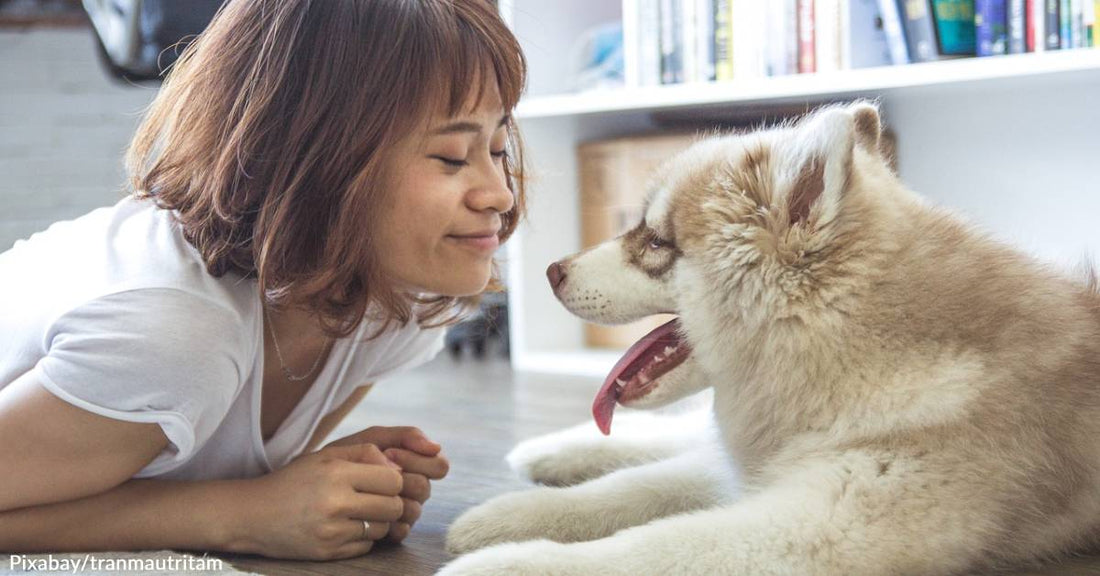The "Long-Lasting Benefits" of Petting Dogs Extend to Non-Dog Owners & Can Last Months
Rebecca West
If you love dogs, you don't need scientific studies to know how beneficial they can be to our physical and emotional well-being. We know they can lower our blood pressure, reduce cortisol (stress hormone) levels, and leave us with that warm and fuzzy feeling we get from hanging with our non-judgmental best buds, who are always happy to see us.
Research suggests that even brief "positive experiences" between humans and dogs can lead to lasting impacts. These encounters lower stress hormones and increase oxytocin, which experts refer to as the love hormone or "cuddle chemical" when discussing it.
And it gets better. Now there's evidence that even short periods of quality time spent with our canine friends can help people think more clearly. The knowledge of all these benefits has spawned an entire movement of animal-assisted therapy groups that spend their time visiting schools, emergency call centers, law enforcement agencies, hospitals, senior homes, workplaces, airports, and rehabilitation centers, among other locations.
Take Pet Partners, which was formed back in the 1970s. Way ahead of the curve, the program was the brainchild of six veterinarians and one psychiatrist who saw early on that pets were having a positive impact on their human clients' health and happiness. To this day, Pet Partners stresses the importance of the human-animal bond.
As little as twice-weekly interactions between school kids and dogs have been shown to improve children's reasoning skills and concentration, and these positive effects persisted for months on end. Animals have also served to help heal and rehabilitate incarcerated persons through various programs across the U.S. using dogs and horses.
"I think it is safe to say that animals are beneficial to our mental and physical health," psychiatry professor Nancy Gee, director of the Center for Human-Animal Interaction at Virginia Commonwealth University (VCU), told National Public Radio. "We're seeing really nice effects," she added.
Research continues to grow due to funding from the public sector — including the U.S. National Institutes of Health — and private non-profits like the Waltham PetCare Science Institute.
In 2022, a team of researchers and psychologists in Australia looked at 129 peer-reviewed studies concerning human-dog interactions. In them, they found that more than half of those studies measured positive physiological changes within people both physically and mentally.
Studies point to cortisol levels plummeting in people who've spent 5 to 20 minutes with a dog, and it didn't matter whether the animal was theirs or not.
"What I love about this research," Gee shared, "is that it's a two-way street. We see the same thing in the dogs, so the dogs' oxytocin also increases when they interact with a human."
Gee and her colleagues saw that students who participated in playtime with dogs during the week had lower stress and improved "executive functioning," which simply means that their reasoning skills and ability to focus measurably improved and that the cognitive benefits did not fade quickly.
"We actually saw [those effects] one month later, and there's some evidence that [they] may exist six months later, she explained.
For real long-lasting benefits, however, nothing beats dog ownership. Another peer-reviewed study published by the American Heart Association (AHA) reported that dog ownership has been linked to a 33 percent drop in the risk of death for heart attack victims and 27 percent for stroke survivors that had previously been living alone.
Basically, the companionship and unquestioning love they provide us with, combined with their silly antics, cuddles and kisses, and lack of judgment, is the magic elixir or tonic we all need in our lives.






